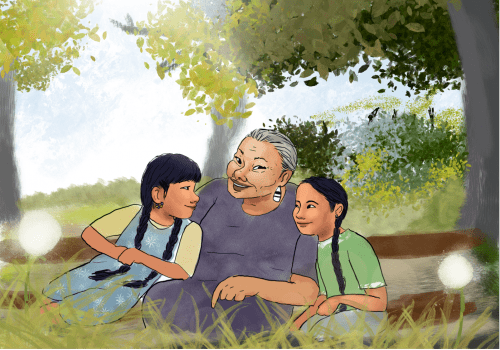
Storybook Download Options
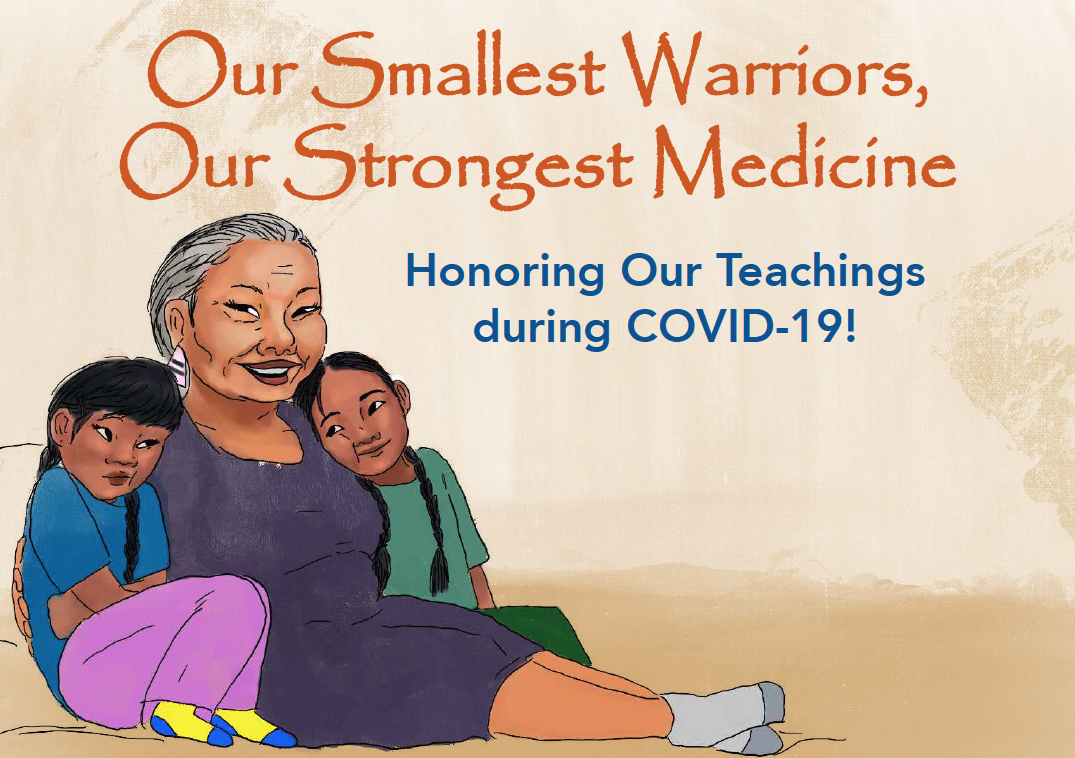
|

|
Let Us Know What You Thought of the Storybook!
Take our survey here to help us understand how the book is helping your family. If you have questions please email our team at OurSmallestWarriors@gmail.com.
Coloring & Activity Pages
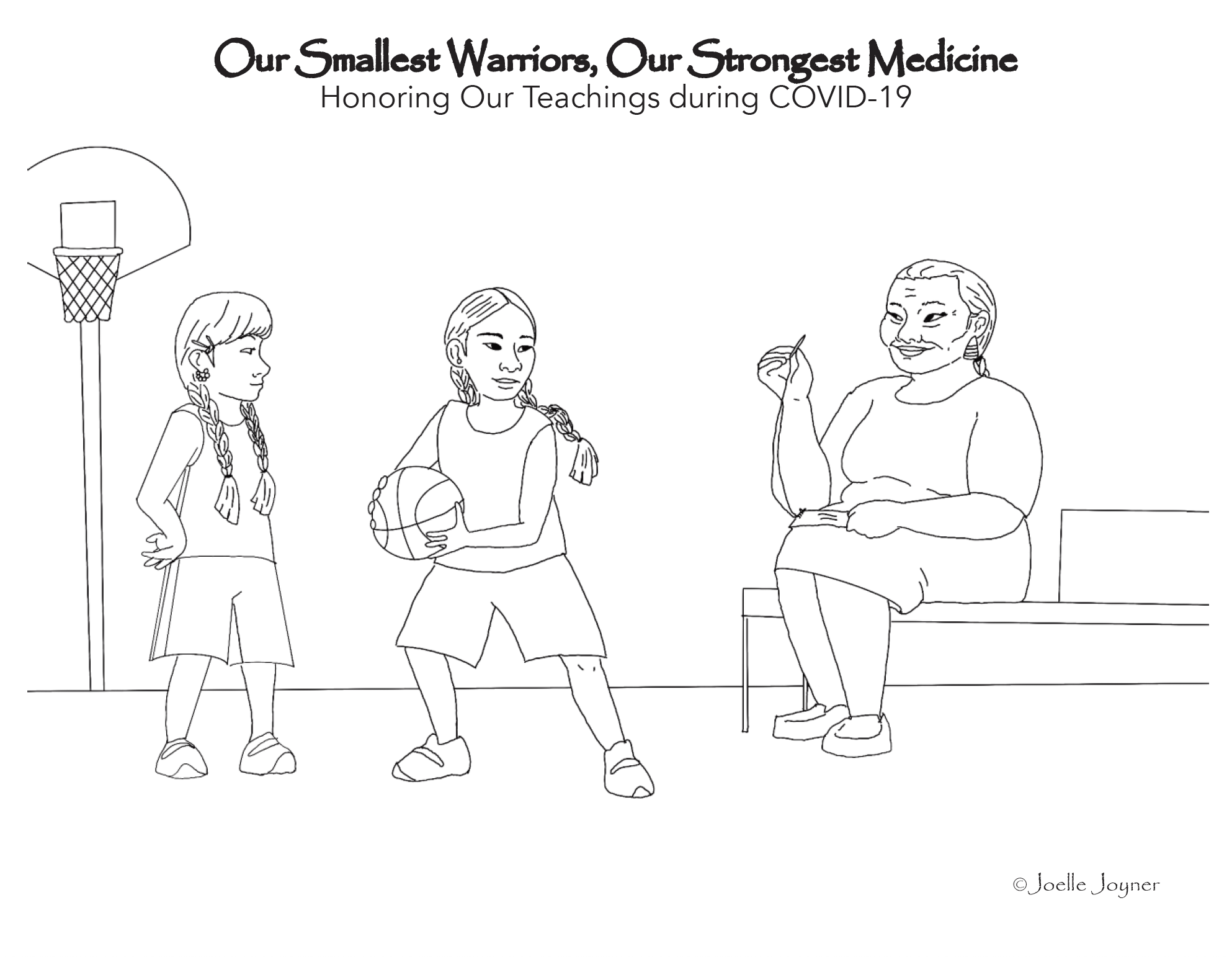
|
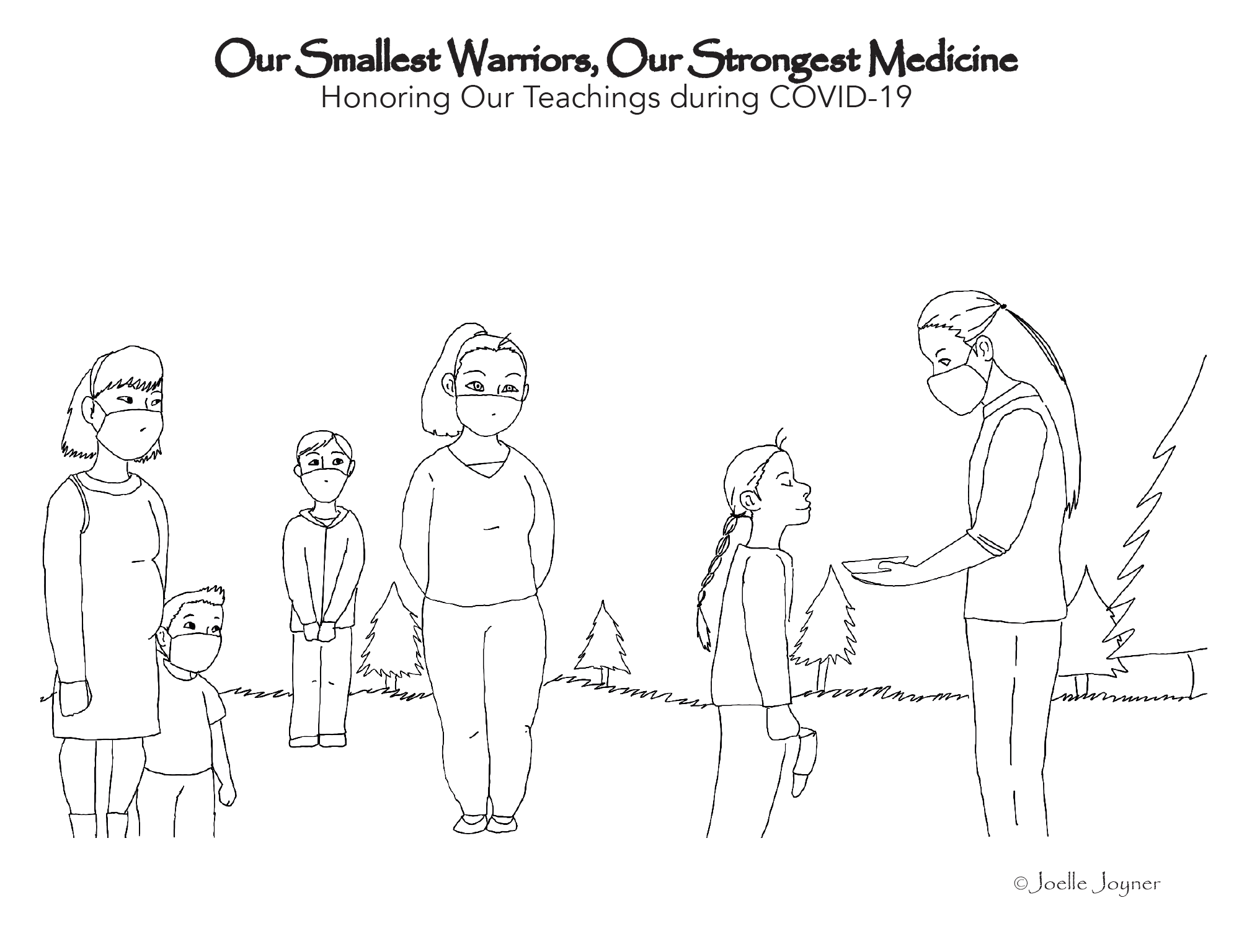
|
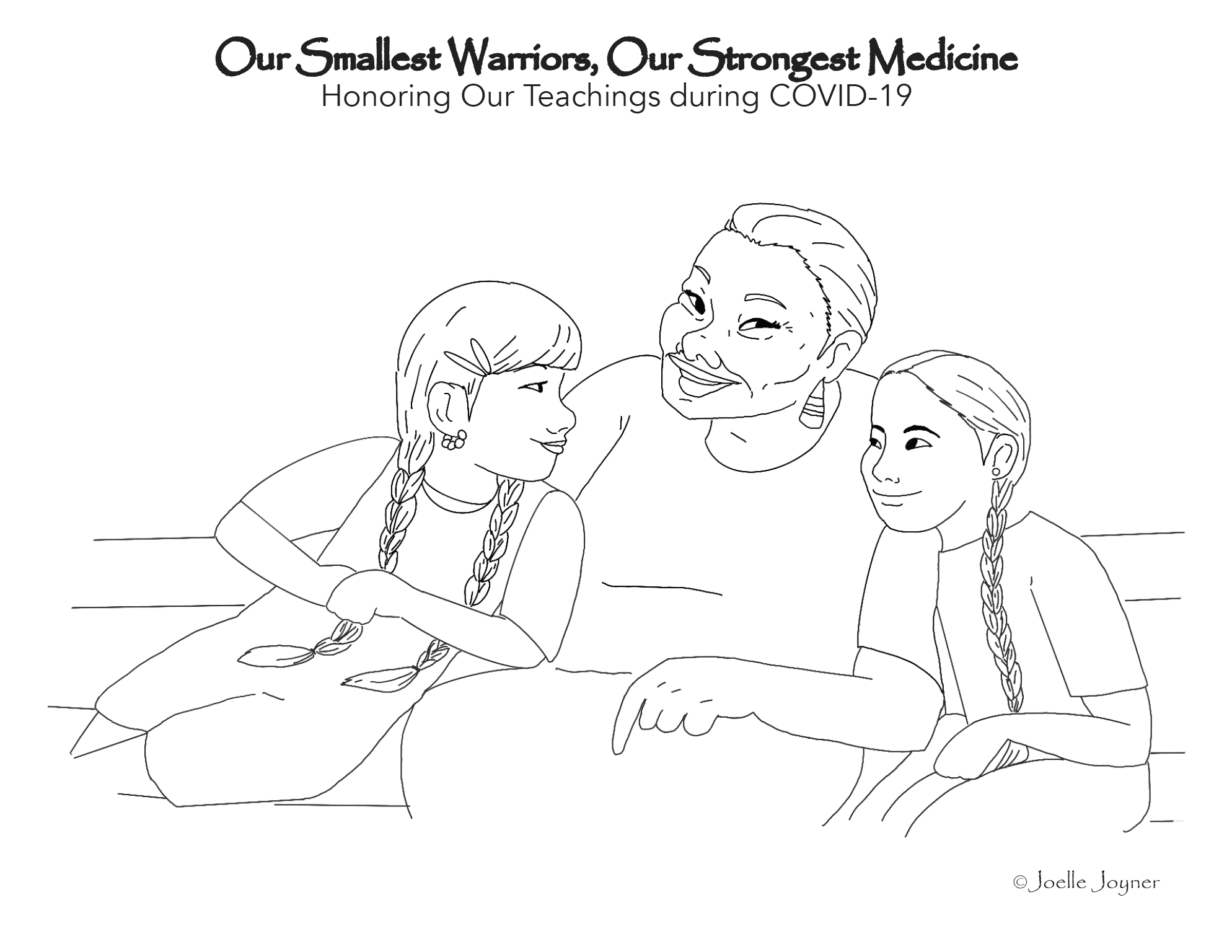
|
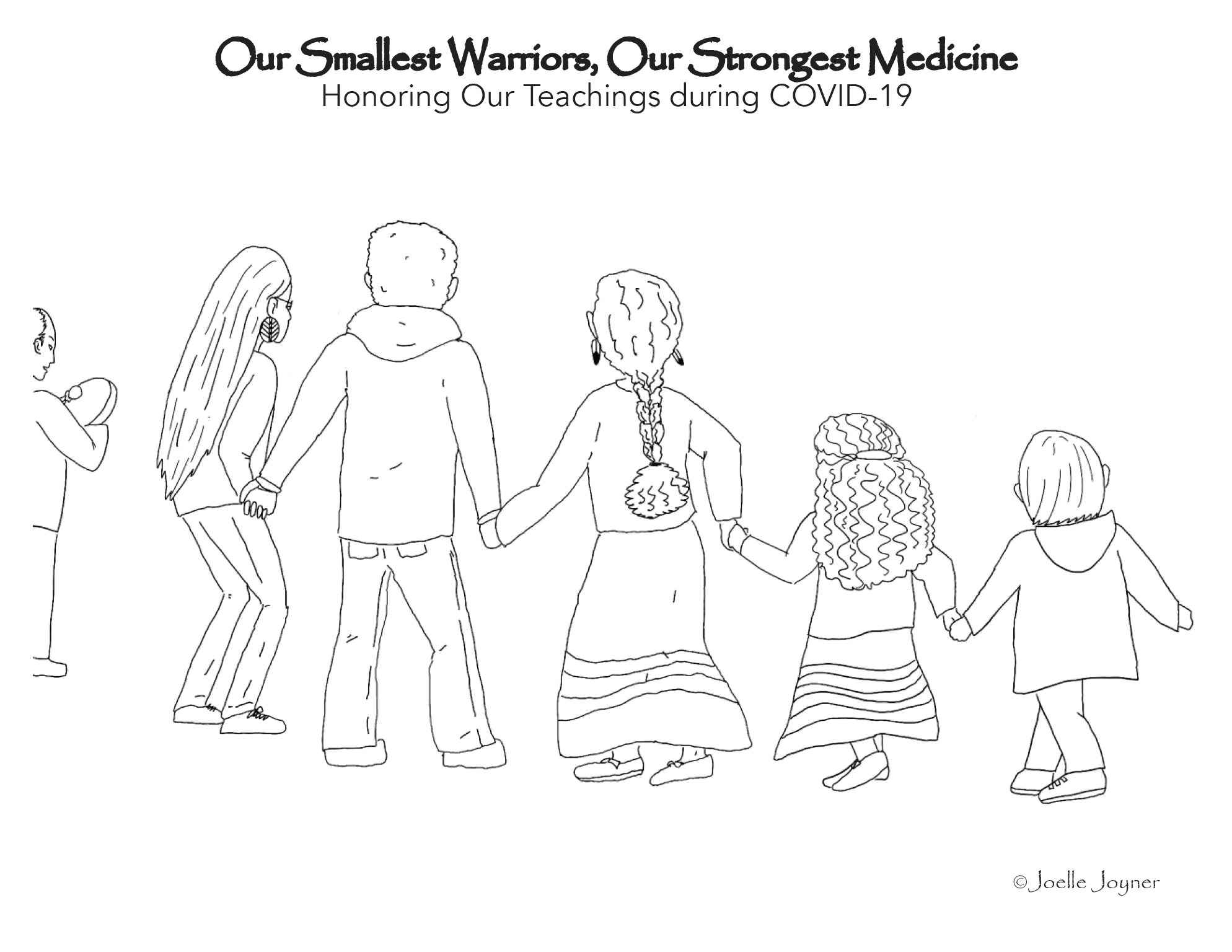
|
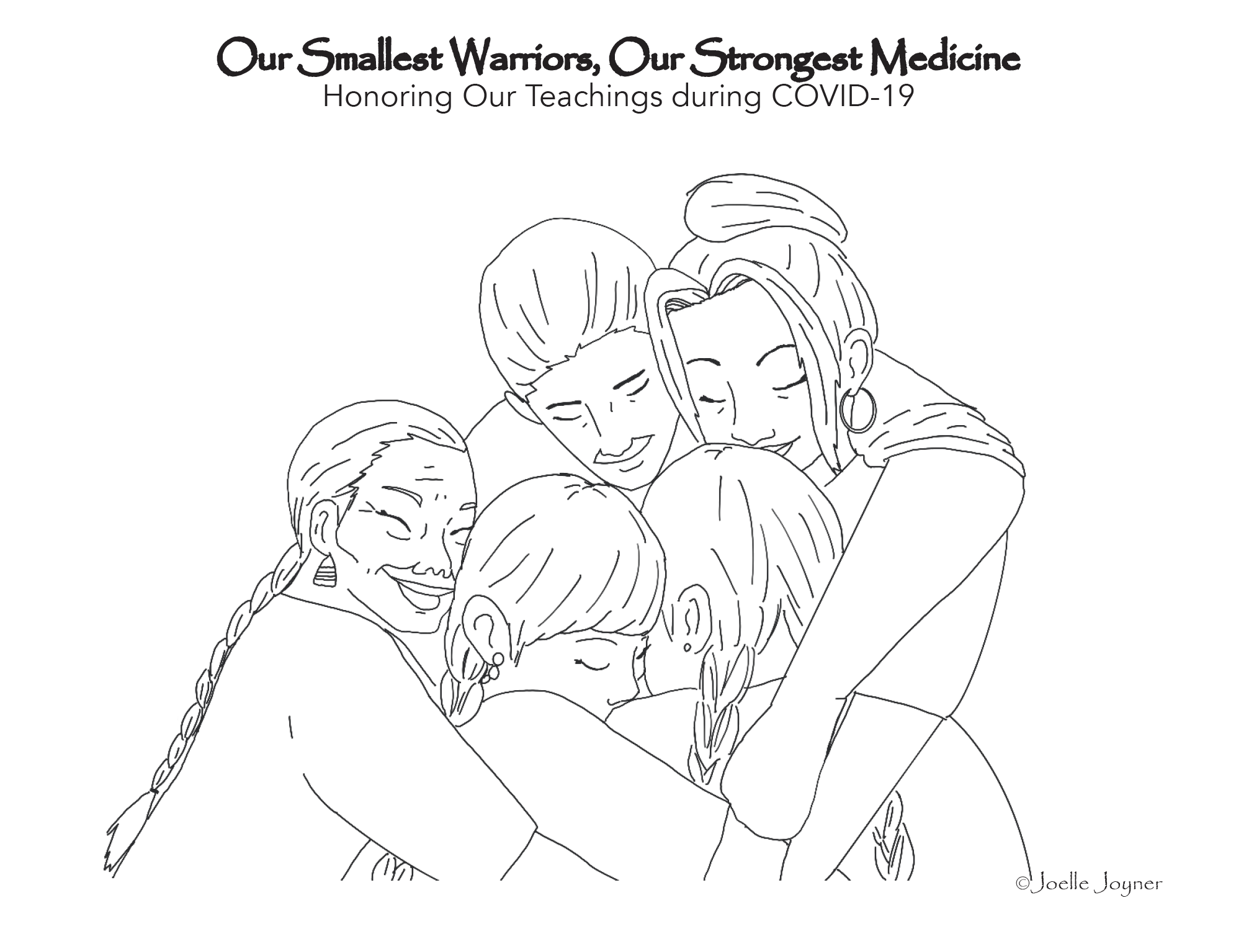
|
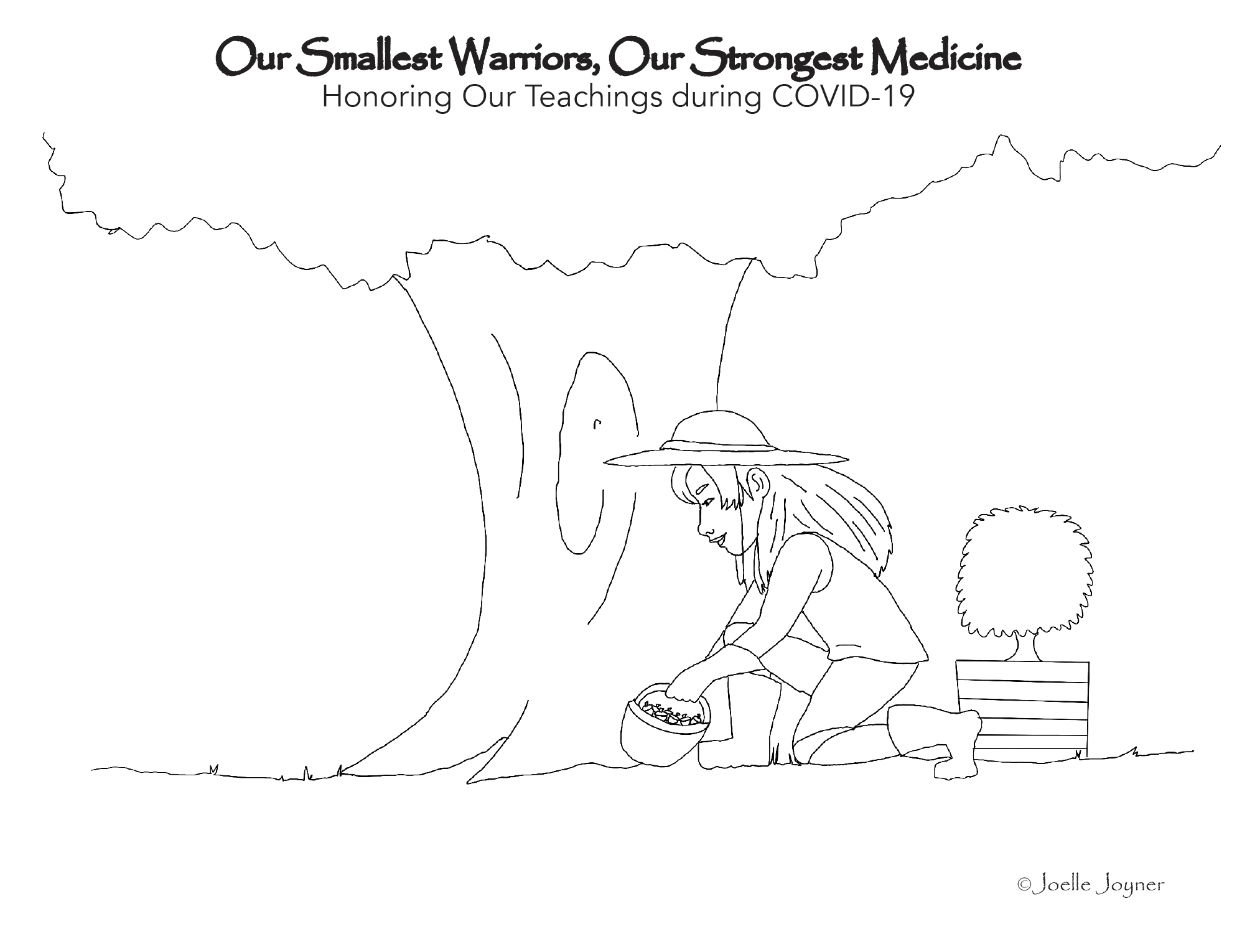
|
Parent Resources
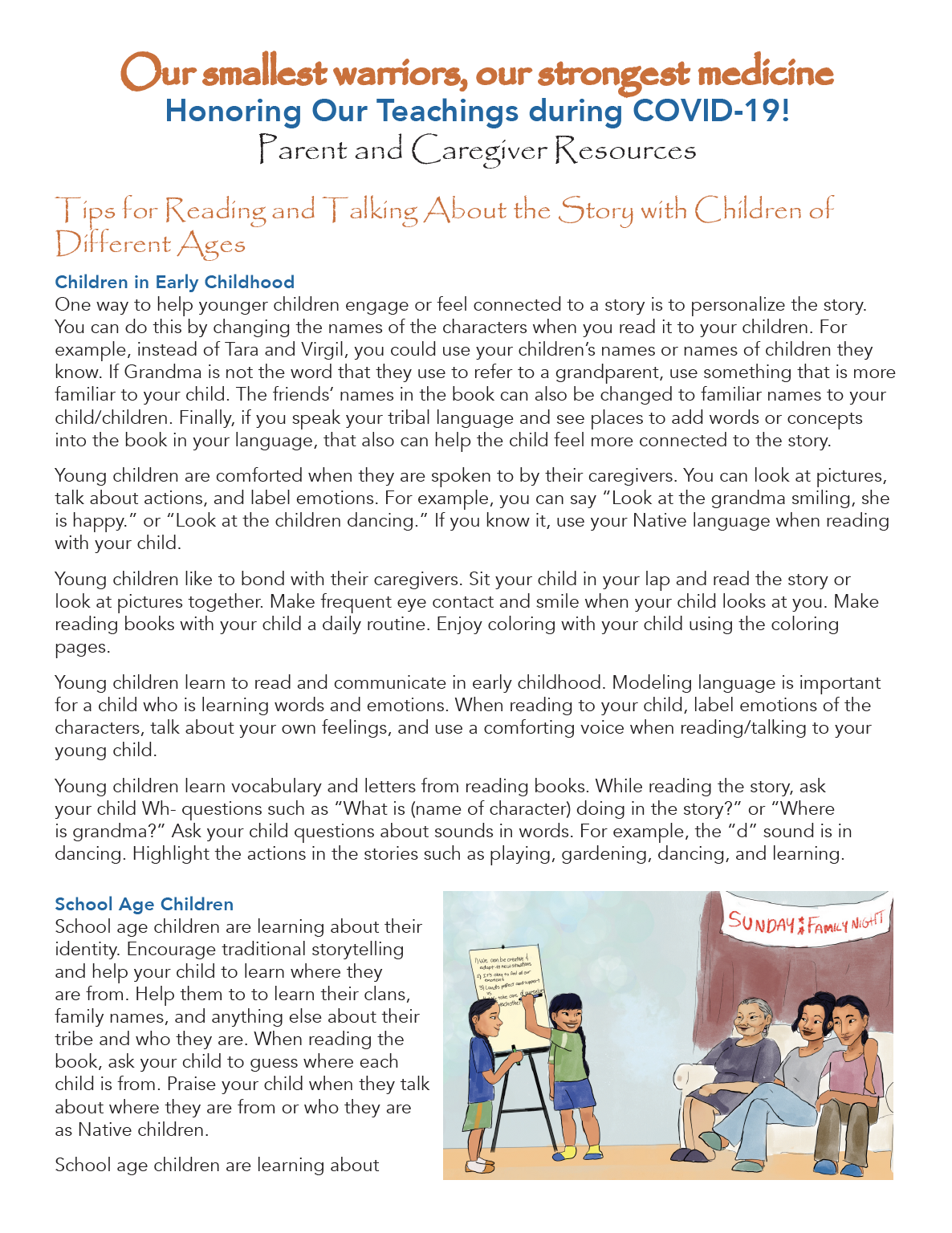
|
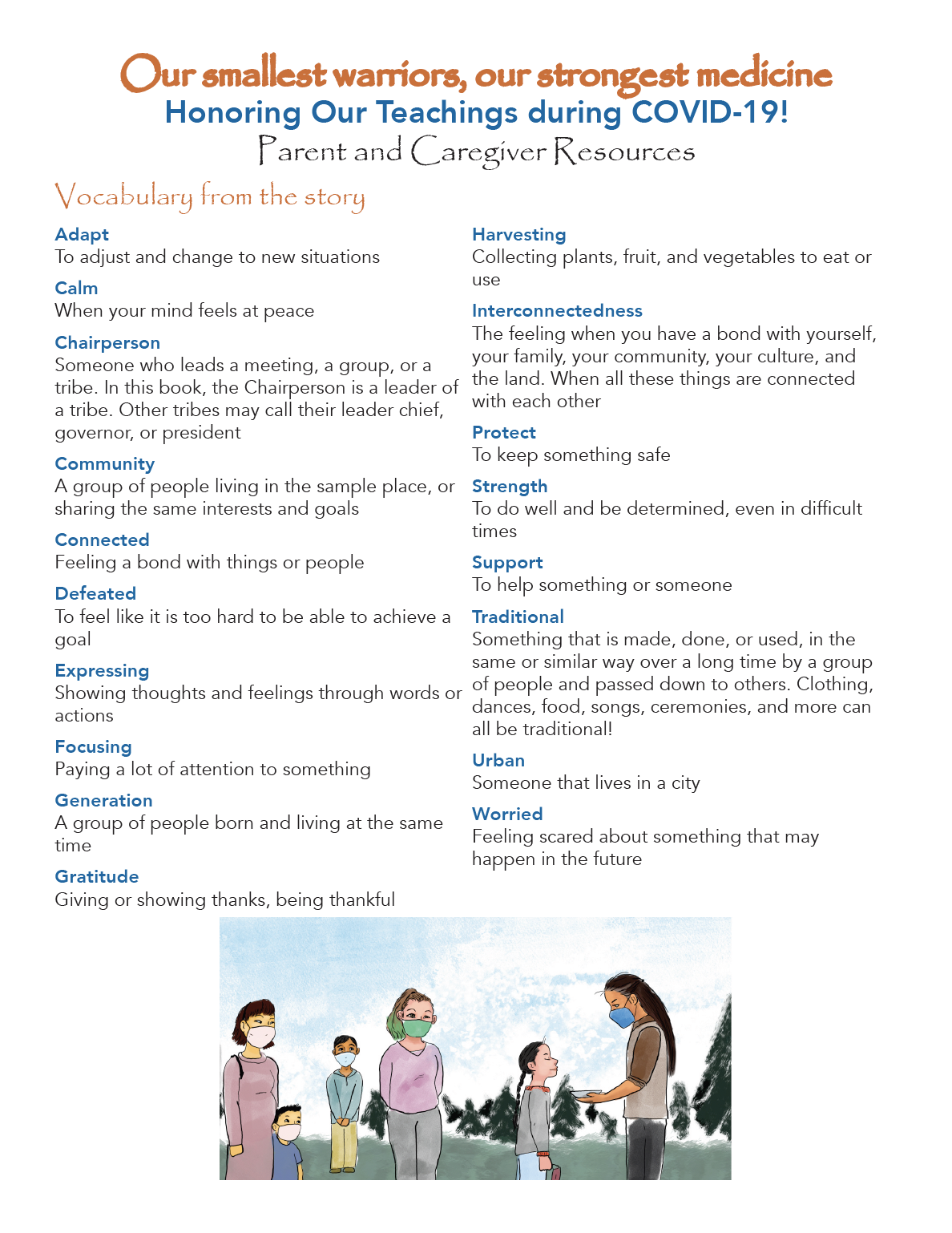
|
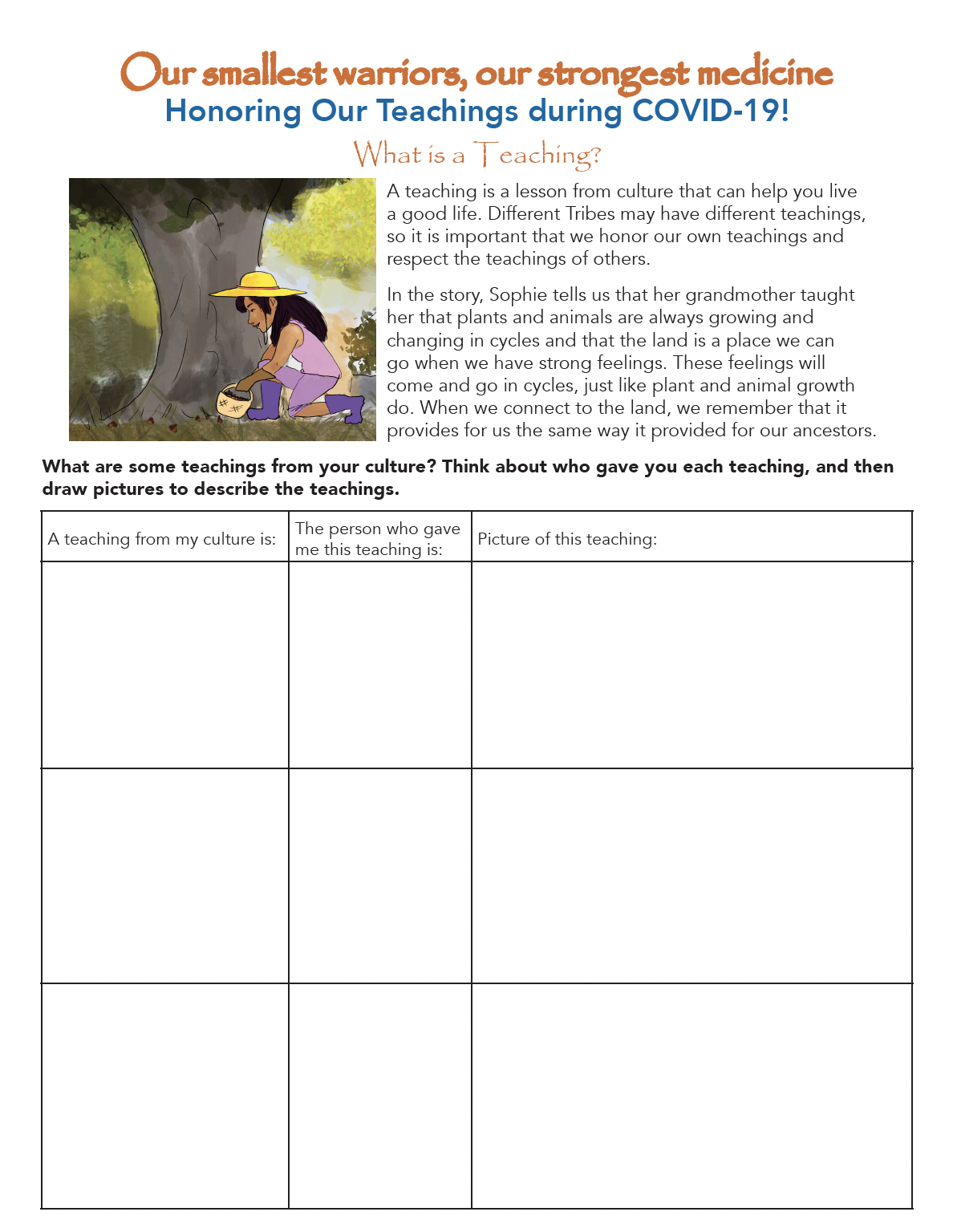
|
Interested in reading more? Check out the original storybook, Our Smallest Warriors, Our Strongest Medicine: Overcoming COVID-19!
This book is a sequel to “Our Smallest Warriors, Our Strongest Medicine: Overcoming COVID-19” which was culturally adapted from “My Hero is You,” a children’s book developed by the Inter-Agency Standing Committee Reference Group on Mental Health and Psychosocial Support in Emergency Settings (IASC MHPSS RG). For more information, parenting resources, children’s activities, and the PDF of our original book, “Our Smallest Warriors, Our Strongest Medicine: Overcoming COVID-19,” please see our website. This series of stories seeks to reach Indigenous peoples across Turtle Island and portray a sense of communal efficacy, strength, and hope in the face of the COVID-19 pandemic. The pandemic has brought new changes and challenges to many of our communities, but we continue to remember that our cultural teachings bring us strength and resilience.
This book should be read by a parent, caregiver, or teacher alongside a child or small group of children. It is not encouraged for children to read this book independently without the support of a parent, caregiver, or teacher. This book can be read in one sitting or broken up into multiple reading sessions. If you choose to read the story in multiple parts, you might read each character’s story as its own chapter. Each of Tara and Virgil’s friends shares their story and teaching to pass on.
This book is dedicated to all our relatives whose lives have been impacted by COVID-19 and to our knowledge keepers who carry our traditional teachings now, as well as those who will pass these teachings on to future generations.
The Johns Hopkins Center for American Indian Health convened a team of Native American experts in child development, public health, and communications as well as a Native illustrator to write this sequel and create illustrations that represent Indigenous peoples, values, and communities. The people listed below contributed to developing and distributing this sequel:
Joshuaa Allison-Burbank, PhD, CCC-SLP, Diné and Acoma Pueblo, Johns Hopkins Center for American Indian Health, Johns Hopkins Bloomberg School of Public Health
Alberta Becenti,* MPH, Diné Nation, Health Promotion/Disease Prevention & Health Education Consultant, Indian Health Service
Maisie Conrad, MSPH Candidate, Center for American Indian Health, Johns Hopkins Bloomberg School of Public Health
Fiona Grubin, MSPH, Center for American Indian Health, Johns Hopkins Bloomberg School of Public Health
Emily E. Haroz, PhD, MA, MHS Center for American Indian Health, Johns Hopkins Bloomberg School of Public Health
Crystal Kee, BS, Diné Nation, Program Consultant, Center for American Indian Health, Johns Hopkins Bloomberg School of Public Health
Lisa Martin, MPH, Ojibwe, Inter-Tribal Council of Michigan
Kristin Masten, MPH, Center for American Indian Health, Johns Hopkins Bloomberg School of Public Health
Tara Maudrie, MSPH, Sault Ste. Marie Ojibwe, Center for American Indian Health, Johns Hopkins Bloomberg School of Public Health
Victoria M. O’Keefe, PhD, Cherokee/Seminole Nations of Oklahoma, Center for American Indian Health, Johns Hopkins Bloomberg School of Public Health
Marcella Ronyak,* PhD, LCSW, CDP, Confederated Tribes of the Colville Reservation, Director, Division of Clinical and Community Services, Indian Health Services
Jessica Ullrich, PhD, Inupiaq, Nome Eskimo Community, University of Alaska Anchorage School of Social Work
* Indicates that an individual is an employee of the Indian Health Service. Views expressed in the book do not necessarily represent the views of the agency or the United States.
This book is illustrated by Joelle Joyner (Meherrin). She is an undergraduate student at Wayne State University, free-lance artist, illustrator, and Jingle Dress dancer from Detroit, Michigan. Notably, her art has been featured in the Kresge Foundation headquarters and in the National Museum of the American Indian magazine.
We would like to express gratitude to the JHU Office of the President and Office of the Provost, as well as the Johns Hopkins Alliance for a Healthier World, UNICEF USA, Indian Health Service, and Casey Family Programs for supporting the “Our Smallest Warriors, Our Strongest Medicine” books.